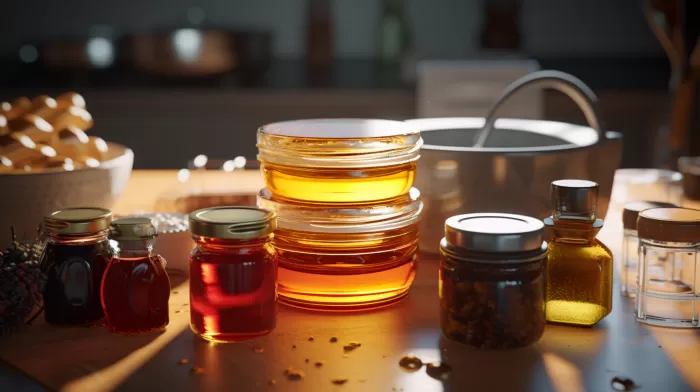Are you a slave to your sweet tooth? You might want to reconsider the type of sweetener you use in your daily life. Refined white table sugar, for example, has over 100 adverse effects associated with it, promoting heart disease, diabetes, and obesity.
Yet, before you reach for those artificial, zero-calorie sweeteners, remember that those also come with a host of problems. Artificial sweeteners are between 30 and 7,000 times sweeter than sugar, and although they have no calories, they can still contribute to obesity, diabetes, and heart disease.
High fructose corn syrup (HFCS) isn’t the answer either. It’s essentially the same as sucrose in terms of detrimental health effects and impact on blood levels of glucose, insulin, leptin (fat control hormone), and ghrelin (hunger and energy regulation hormone).
The good news is that you don’t have to give up satisfying your sweet tooth entirely. There are alternative sweeteners out there that won’t cause body fat, hormone imbalances, or chronic disease. In fact, there are several natural substitutes you can use in place of processed sweeteners.
Raw Honey
Mentioned in ancient texts for its medicinal properties, raw honey is high in antioxidants and is known to have anti-inflammatory and antibacterial benefits. Add some to your tea, yogurt, or smoothies for a delicious, healthier alternative to sugar. Just make sure not to combine it with high heat, which can destroy its nutrients.
Pure Maple Syrup
Derived directly from the sap of the sugar maple tree, pure maple syrup is minimally processed and contains antioxidants and minerals (zinc and manganese). Drizzle it on your pancakes or oatmeal to start the day with a natural sweetener.
Dates
Rich in potassium, magnesium, and fiber, dates are a great natural sweetener. They can be eaten on their own or blended into a paste to add a touch of sweetness to your desserts or smoothies.
Stevia
Stevia is derived from the leaves of the Stevia plant and is 200 to 300 times sweeter than sugar. Since it doesn’t raise blood sugar levels, it’s a popular choice for diabetics. It is available in various forms, like liquid drops, powders, and baking blends.
Blackstrap Molasses
Produced during the refining process of cane sugar, this natural sweetener is rich in iron, calcium, and potassium. Use it as a healthy and flavorful addition to your baking.
Coconut Sugar
Coconut sugar is made from the sap of the coconut palm. It contains trace amounts of vitamins, minerals, and antioxidants. With a low glycemic index, it’s an excellent substitute for refined sugar in baking.
Xylitol
Xylitol is a sugar alcohol derived from birch wood. It has fewer calories than sugar and doesn’t have a negative impact on blood sugar and dental health.
Erythritol
Another sugar alcohol, erythritol, has zero calories and doesn’t affect blood sugar levels. Erythritol has a similar taste to sugar, making it a great substitute for those who want to decrease their sugar intake without sacrificing taste.
Monk Fruit
Monk fruit is a calorie-free natural sweetener derived from a fruit native to China. It’s much sweeter than sugar but doesn’t impact blood sugar levels, making it an excellent alternative for diabetics.
Agave Nectar
Agave nectar comes from the agave plant, and it has a low glycemic index and is about 1.5 times sweeter than sugar. Use sparingly, as it is high in fructose.
Yacon Syrup
Yacon syrup is extracted from the yacon plant and is high in fiber. It has a low glycemic index and can help regulate blood sugar levels.
Sorghum Syrup
Made from sorghum grass, sorghum syrup is a natural sweetener rich in antioxidants and minerals. Its rich, earthy flavor makes it perfect for use in baking and cooking.
Choosing natural alternatives to processed sweeteners can help you create a healthier lifestyle while still satisfying your cravings for sweetness. Don’t force yourself to give up sweet flavors entirely, but make smarter choices to nourish your body without sabotaging your health goals.



